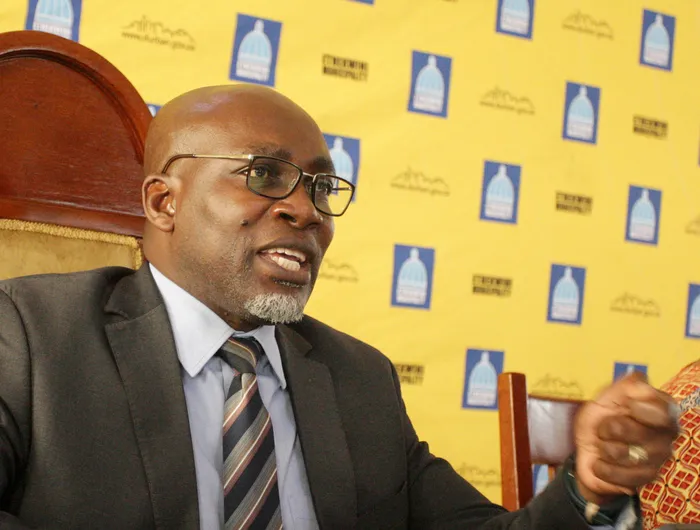Victory for eThekwini in vacant land rates case

EThekwini Municipality mayor Mxolisi Kaunda. EThekwini Municipality mayor Mxolisi Kaunda. File Picture: Bongani Mbatha: African News Agency /ANA
Durban - eThekwini mayor Mxolisi Kaunda has welcomed the decision by the Pietermaritzburg High Court, which dismissed an application brought by the South African Property Owners’ Association (Sapoa) challenging the property rates on vacant land in the city.
Kaunda told members of the executive committee this week that this showed that decisions taken by the municipality were prudent. The matter relates to the property rates increases that came into effect on vacant land in the 2022 financial year where the council took a decision to increase the rates randage by 100% for vacant land, and it escalated from 5.8966 cents to 11.7932 cents in the rand.
The association had brought an application in two parts. The first part was an interdict application which high court Judge R Mossop recently decided on in the City’s favour.
In terms of the interdict, the association did not challenge the 2022 decision, but sought to interdict and restrain the City from implementing the decision of council to fix the rates randage payable in respect of vacant land in the current 2023/2024 financial year, and the enforcement action and collection of unpaid rates on vacant land on any rates exceeding the rates amount that was in place on June 30 last year.
In its application, Sapoa detailed a number of concerns about the “excessively high” increases, including that the rates imposed by eThekwini were much higher than other metros.
It said assuming a vacant property had a value of R1 million, after the new rates randage, eThekwini would charge rates of about R118 000 per annum on that land, whereas the City of Tshwane would only charge about R39 000 per annum and Cape Town about R13 000 per annum. The association had argued that the disparity was prejudicial to its members, and unsustainable. It added that such a decision also dampened property values and curtailed development and growth, because investors would regard the eThekwini area as being less likely to generate acceptable returns on investment.
In response, the municipality had argued that all budgetary processes had been complied with and that it had acted lawfully.
The judge said while the figures “vary greatly between municipalities and may initially generate a feeling of shock, particularly among owners of vacant land in eThekwini, it could be that some cities may have an abundance of vacant land and can afford to charge lower rates because of that”.
The court said it understood that the association wanted to prevent the implementation of a decision regarding the rates randage for the coming financial year because of the 2022 decision that it did not agree with. However, the court said by the time the matter was heard the budget had already been passed for the current financial year.
“To challenge the impugned decision, ultimately the budget for two financial years would have to be challenged and reversed. This would be a difficult thing.”
The judge said he was not persuaded that the association had established a prima facie right to the relief sought.
“In my view the case made out by the applicant is tenuous insofar as an interim interdict is concerned: the prima facie right claimed is subject to an unacceptable degree of doubt. The application cannot therefore succeed.”
Attempts to reach the organisation for comment were unsuccessful last week.
Related Topics: